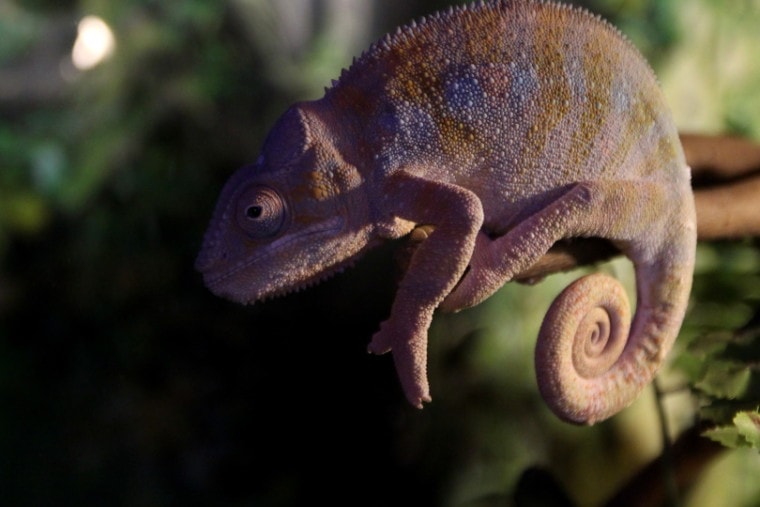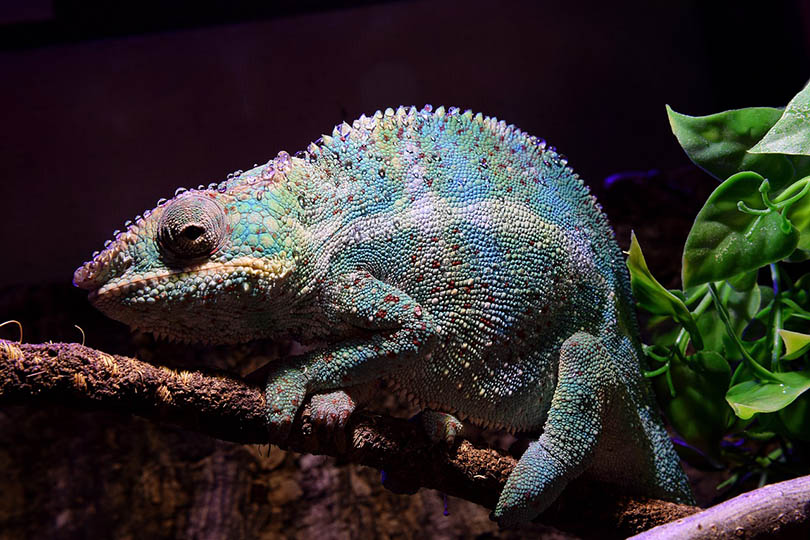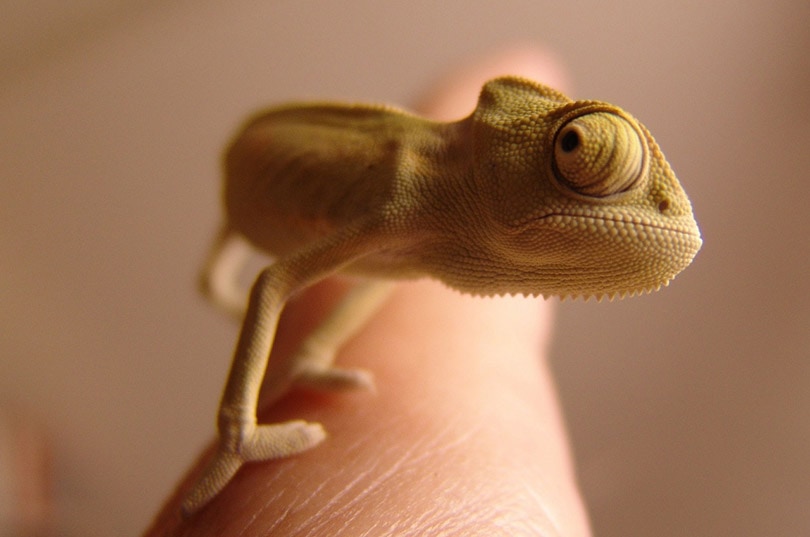
Small reptiles like chameleons are fun animals to keep as pets. They typically stay within their habitat enclosure, and they do not make much noise, if any at all. They are easy for young children to care for, and feeding them does not cost an arm and a leg. Chameleons come from tropical and even subtropical climates, where winter months never produce cold weather or snow. Since many animals hibernate when it gets cold outside, many people wonder whether chameleons living in captivity will do so too.
“Brumation” is a reptile’s equivalent to a mammal’s hibernation. Brumation and hibernation are not exactly the same thing, but both mean that an animal slows its metabolism and saves its energy when the weather is too cold out to hunt and eat. So, do chameleons go through brumation? The short answer is that yes, they can. However, they should not.
Why Chameleons Might Go Through Brumation
In nature, chameleons do not experience brumation because the weather remains tropical year-round. Even in places like Hawaii, where the mountains get extremely cold during winter months, you will only find chameleons and lizards living near ocean levels and never traveling up toward the mountains. However, captive chameleons do not have a say in where they reside. They may end up in a place where it gets cold or snows during the winter months.
When a chameleon in captivity experiences cold temperatures, it goes through a brumation period when they stop eating, drinking, and using the bathroom. They move very little and tend to stay in one place for hours, if not days, at a time. Some owners become afraid that their pets are dying or dead when the brumation process takes place.

Why Chameleons Should Not Experience Brumation
Chameleons living in cold climates do not have to experience the brumation process. In fact, it is the responsibility of the owner to ensure that brumation does not take place. There simply is no reason for a chameleon to go through the stress of this drawn-out process, as they are not naturally inclined to do so. They only do so out of the necessity to try to survive. Brumation puts a great deal of pressure on a chameleon and can result in ill health and a shorter lifespan.
How to Discourage Your Chameleon From Going Through Brumation
You can ensure that your chameleon does not have to go through the brumation process by keeping their habitat warm year-round. This can be achieved through the use of a heating system that consists of lamps. A basking lamp should be turned on every morning so your chameleon can mimic their natural tendency to warm up under the sun.
A heat lamp should be turned on any time that temperatures in the habitat get below 70 degrees Fahrenheit. The temperature should remain between 70 and 90 degrees Fahrenheit during the day, but at night, the temperatures can lower to about 65 degrees Fahrenheit without disrupting comfort. Making sure that your chameleon’s habitat is always the right temperature requires a thermometer.
You can attach a digital thermometer to an inside wall of the habitat and monitor it throughout the day to ensure that it is the proper temperature inside. During the cold months, your heat lamp may need to be turned up. It is important to check the temperature in the middle of the night during winter to make sure the heat lamp is keeping the place warm enough.


Final Thoughts
Chameleons are part of the family just like any other pet. They deserve attention and care, and keeping them warm during the winter months is just part of chameleon ownership. If your chameleon starts to go into brumation, you can reduce the time that it stays in that process by finding ways to warm up their environment and make it as tropical as possible.
- See also: Rudis Chameleon
Featured Image Credit: Adina Voicu, Pixabay







